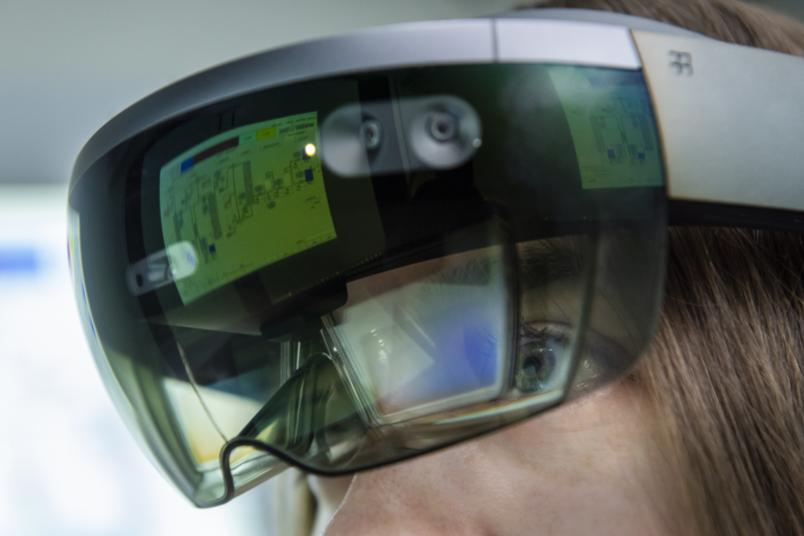
Psychology
Optimising teamwork with augmented reality
A psychology team at RUB is interested in how work processes can be optimised in teams that work in different locations. Among other things, the researchers are experimenting with avatars.
Teams that are distributed across different locations inevitably face obstacles when working together. Time is often lost at handover points where one person has to pick up where another has left off. The team headed by Professor Annette Kluge from the Chair of Work, Organizational, and Business Psychology at Ruhr-Universität Bochum (RUB) is exploring how augmented reality solutions could facilitate cooperation, taking the manufacturing industry as an example. The RUB science magazine Rubin reports on their research.
Teamwork essential for simulated wastewater treatment
For the study, 110 teams had to operate an established simulation of a wastewater treatment plant. This required 13 steps to be completed in the correct order, such as opening or closing valves and filling tanks. If the aim is to obtain as much purified water as possible, good timing is also crucial. The RUB group adapted the simulation so that it has to be operated by two people in a team. To make the whole thing a little more difficult, the two participants also had to solve an individual task. Each person operated a second wastewater treatment plant alone.
Two tools to assist with the task
The participants were provided with a so-called Ambient Awareness Tool to assist with the task. The RUB team developed it together with the group headed by Professor Benjamin Weyers from the Human-Computer Interaction group at the University of Trier. Through augmented reality goggles, the HoloLens, the participants saw three icons, each of which indicated the next upcoming steps in the team and individual task. If the next step was ready to be carried out, the icon started to flash.
The participants didn’t have to constantly check how far the second person had got with their task, but were free to concentrate on their other task in the meantime. In addition, a progress bar signalled when the next step could be tackled.
Team spirit boosted
“We’ve noticed a tendency that the participants work more efficiently when using the Ambient Awareness Tool, but we can’t yet make any reliable statements about this at this point in the evaluation,” says Lisa Thomaschewski from the Chair of Work, Organizational, and Business Psychology, describing the current status of the analyses. According to the researcher, the effect of the progress bar is particularly interesting: Although it didn’t improve the efficiency of the team, it did improve team cohesion – a measure of the sense of belonging to a team. “We believe that the bar is perceived as a social cue: It creates the impression that there’s another person out there,” assumes Thomaschewski.
Because team spirit is important to the researchers, they are currently experimenting with another technique, which is still in its infancy. Instead of the abstract objects of the Ambient Awareness Tool, they are using HoloLens to display the avatar of the respective team partner. The participants thus see a projection of a person through the goggles who can, for example, point in the direction of the next process step. You can find initial results from feasibility studies in the science magazine Rubin.
Original publication